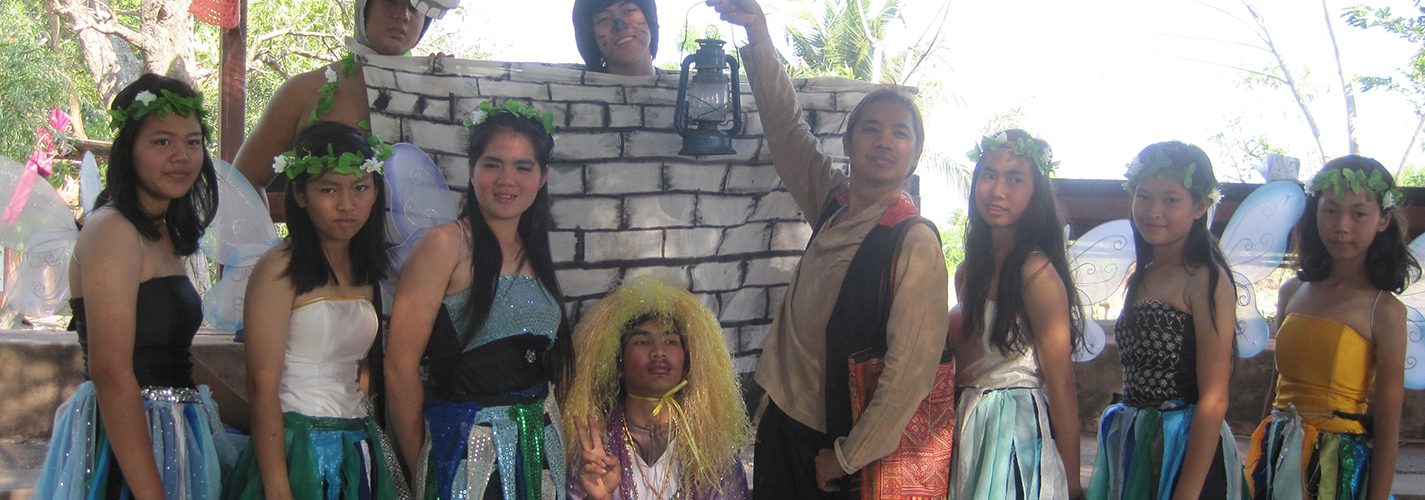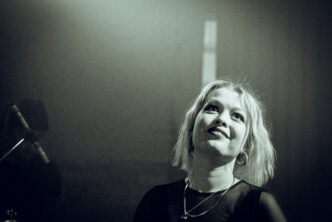Director, Hazel Roy has worked with Thailand’s Moradokmai Theatre Community for over a decade. Much has changed over that time and, as her recent visit shows, the Community never fails to surprise, creating an irresistible draw that has her longing to return.
I first met the Moradokmai Theatre Community from Thailand at a Nepalese theatre festival in 2008. The Community was one of the largest groups attending, and they reminded me of a travelling circus, ranging in age from 8 to 50-years-old. Many shivered in the Himalayan chill of early morning as, despite their locally bought woollen helmets, they were dressed for warmer climes.
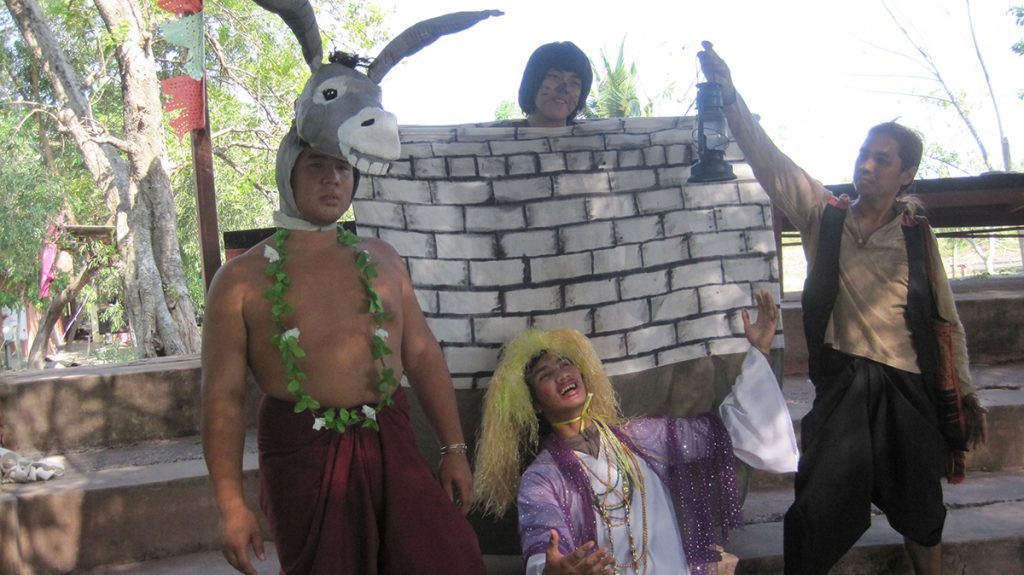
Chang, the Director and charismatic father figure of the company, sported a thin grey beard, which reached half-way down his chest and long hair, tied back in a pigtail. His sense of humour was infectious and I was drawn to him and Pobchan, his much younger wife whose serene features exuded a Buddha-like calm. Chang, I discovered, was a celebrity in Thailand, well known for his extensive film career. A dynamic jazz musician and actor, he had studied music in America. Both he and Pobchan spoke excellent English though the rest of the company had just a few halting words. We hit it off immediately.
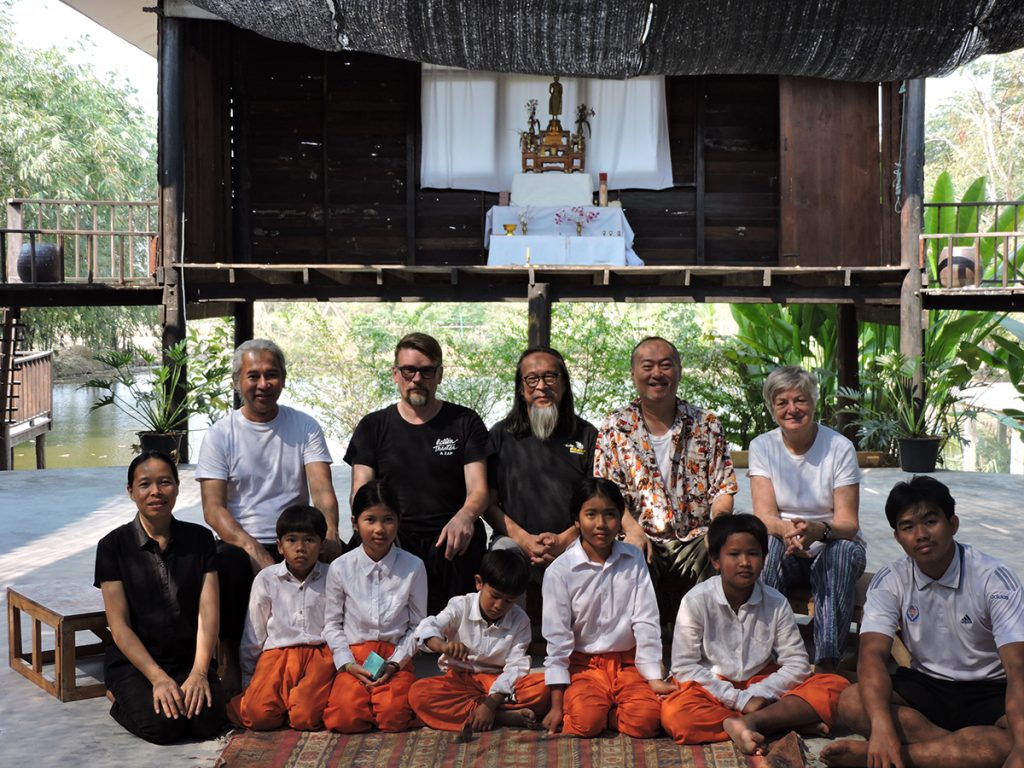
My company of English actors had witnessed the early rising habits of Moradokmai who took over the fourth-floor dinning room of our hotel at 5.30 am every morning where they lit candles to welcome the dawn and conducted a Buddhist ceremony accompanied by drums and a Thai xylophone, before embarking on a strenuous rehearsal which lasted til the rest of the international thespians, rather bleary-eyed from the previous late night theatre and after-show drinking, joined them for breakfast at 8am. They intrigued me. When Chang asked me to go and direct for them I took up the challenge. This was the beginning of a long and creative friendship.
Some 20 years ago Chang moved his acting company out of Bangkok to establish a home school in Klong Luang Patumthani, a rural region 47 kms north of Bangkok. Here his actors and young students could live and learn together, in a self-sufficient community, growing their own food and creating a base for the study of traditional Thai dance music and performance, while welcoming international artists to come and share their skills and experience.
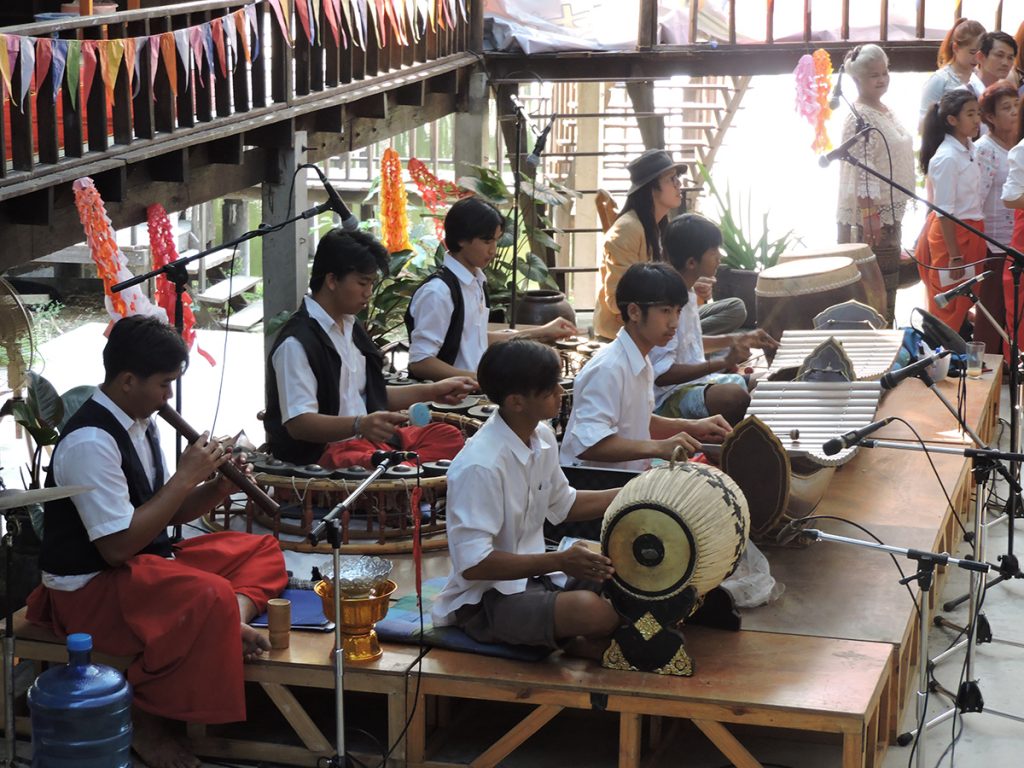
International festivals at Patumthani brought artists from all over the world. The 2010 festival alone, the first years I visited them, featured performers from India, Romania, Germany, Netherlands, Indonesia, Uganda, Nepal, Russia, Estonia, and Slovenia. The 2011 festival also featured artists from France, America and Cambodia.
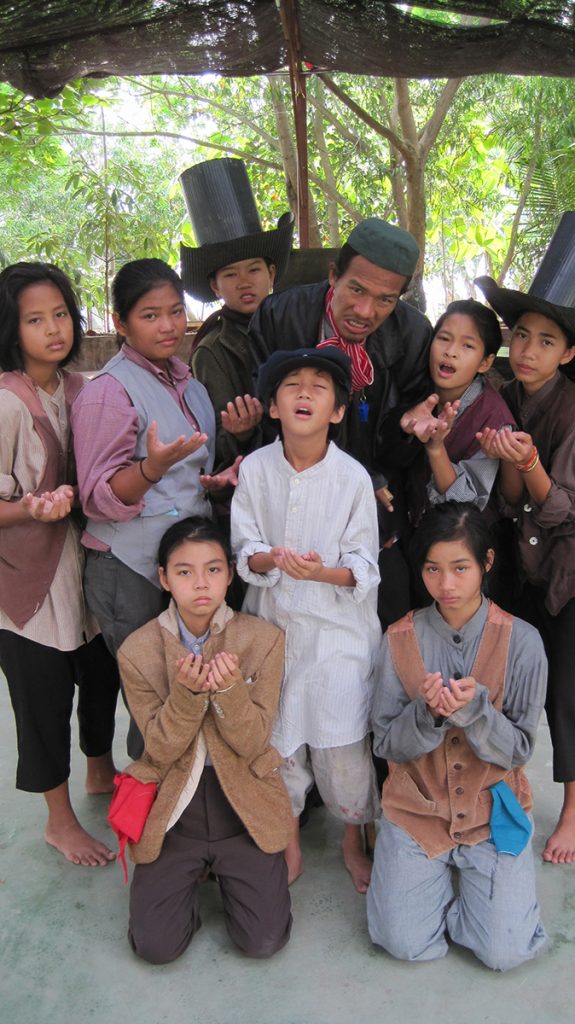
My first production for the company was Caucasian Chalk Circle. We rehearsed and performed in an open-air circular arena under a black scrim awning looking out over a groove of banana trees and rice fields. Pobchan translated the play into Thai and I worked from a script where both languages sat side-by-side, so we were literally always on the same page.
I introduced the script only gradually as the actors became more and more familiar with the story line, and after many scene-by-scene discussions on character motivations and the underlying theme of the play. I have now directed for the company a number of times using this technique. This January 2020 marked my fifth visit after an absence of several years.
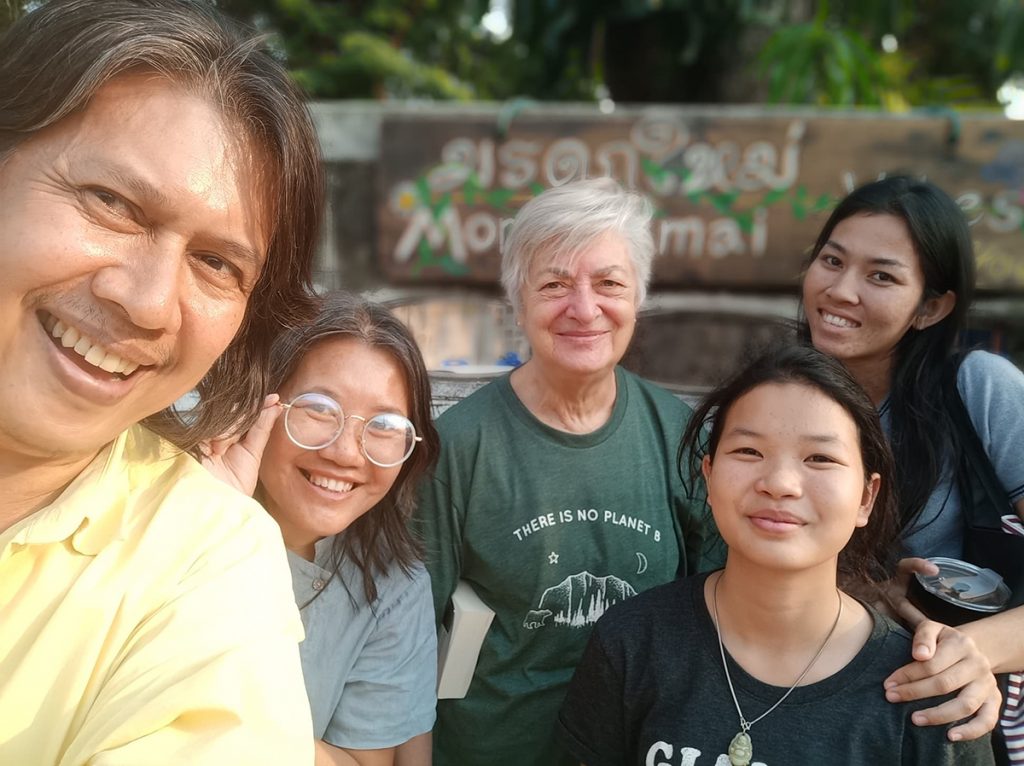
In additional to international links, the company has a schools’ network throughout Thailand, where their actors teach dance and drama and invite the schools to perform at their home base. They also work in prisons and probation centres. In 2013, I worked for them at a probation centre in Songkhla province where we dramatised a short story that had won a South East Asia writers award. The play was then performed with two other adaptations compiled by a Spanish and Nepalese director – the trio entitled, “Thai stories through the eyes of outsiders”. Subsequently my play was performed all over Thailand.
The company travel extensively. In 2012 they came to England for the Contacting the World festival and a subsequent tour. They have extensive links in Eastern Europe where their students have gone to study in a different musical tradition.
Future tours are now dependent on the control of the pandemic – fortuitously as it turned out, I managed a month with them this January getting back well before lockdown. This latest challenge was to create a performance from a play written by a Thai playwright who had attended a playwriting course at Moradokmai. The play, Guiding Ghosts, was about a generational struggle between two brothers over ancestral traditions.
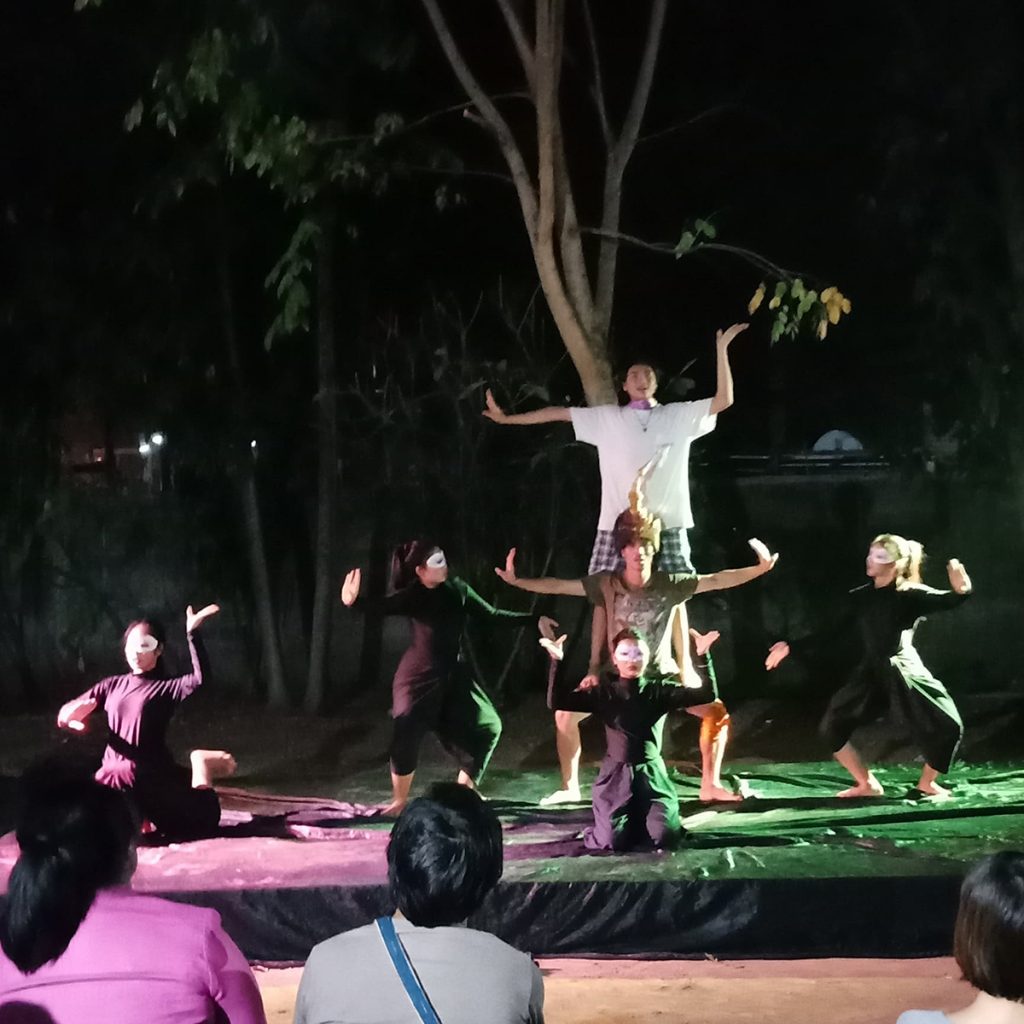
Thai does not translate easily into English and my first task was to unravel the meaning of the play. I worked extensively on the script with the playwright, who is head of the faculty of Film and TV at Rangsit University. This was a skill sharing exercise to keep the play true to its conception but utilising what I could bring from a western theatre tradition.
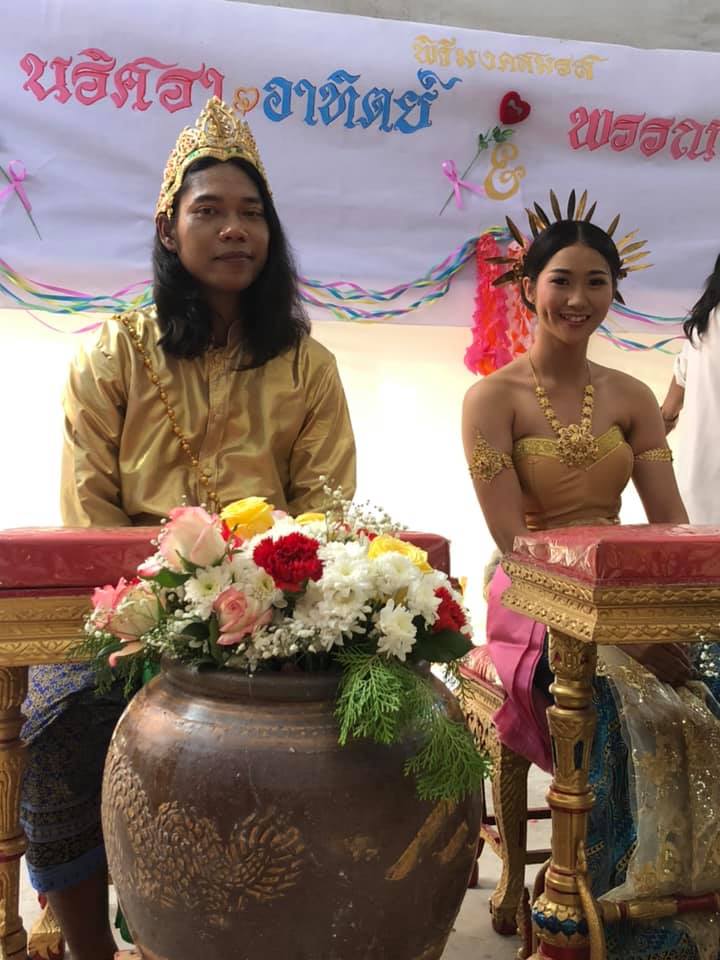
Working with actors who live together is fascinating. Because they know each other so well (some younger actors were born here from acting parents) their responses are instinctive. Once they have understood the nature of the play the speed at which they create their performance is exceptional. While progress is slower with some of the younger members of the cast, I never ceased to be impressed with their skills and hard work.
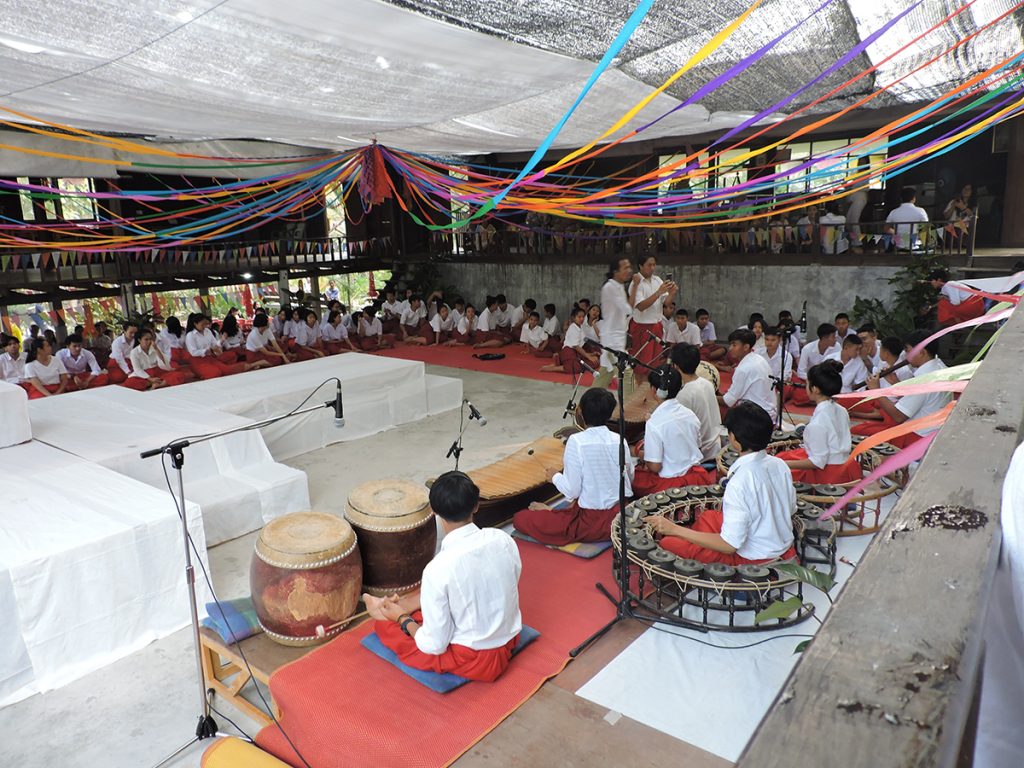
I have learned from working at Moradokmai to expect the unexpected, never make assumptions and be endlessly adaptable. Over the course of 27 days, I had a series of cast changes and lulls between rehearsals when the actors were performing elsewhere or assisting at a massive three day music festival, a huge Guru theatre blessing ceremony, two Thai weddings of company members and preparations for a major American tour which was to be cut short by the pandemic.
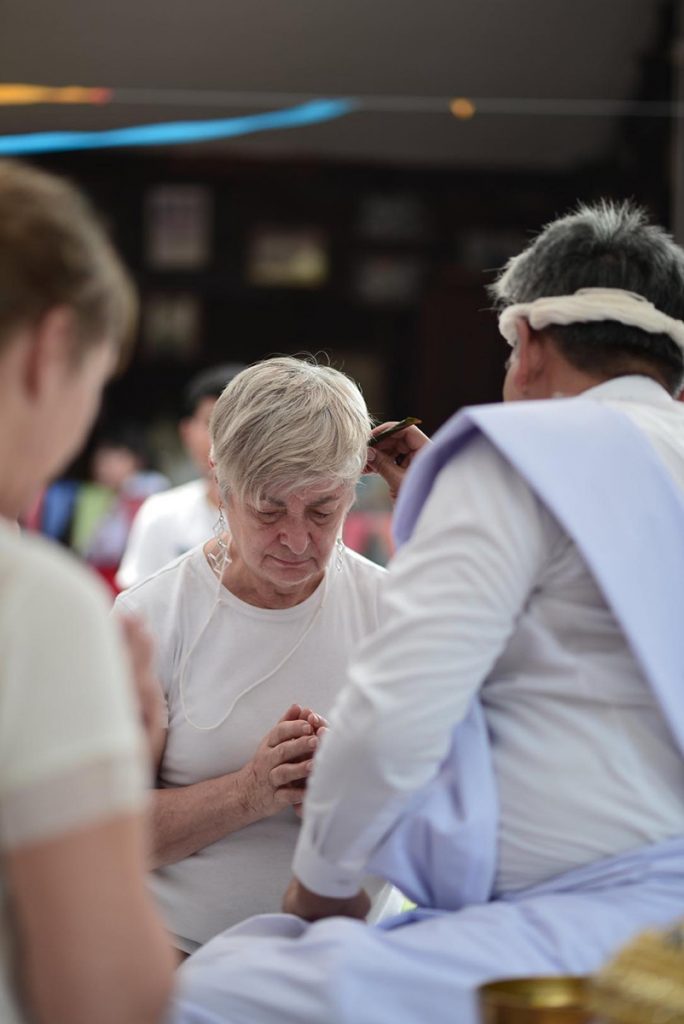
They also busk in the night markets several times a week; a surprisingly successful funding stream for the company, which I guess, is also temporarily curtailed. We travelled to Rangsit University to perform the play to film students and to Korat to perform in their open-air theatre space. (The company also has land in Loei province and Chang Rai.) I also recorded the whole play in English in their sound studio.
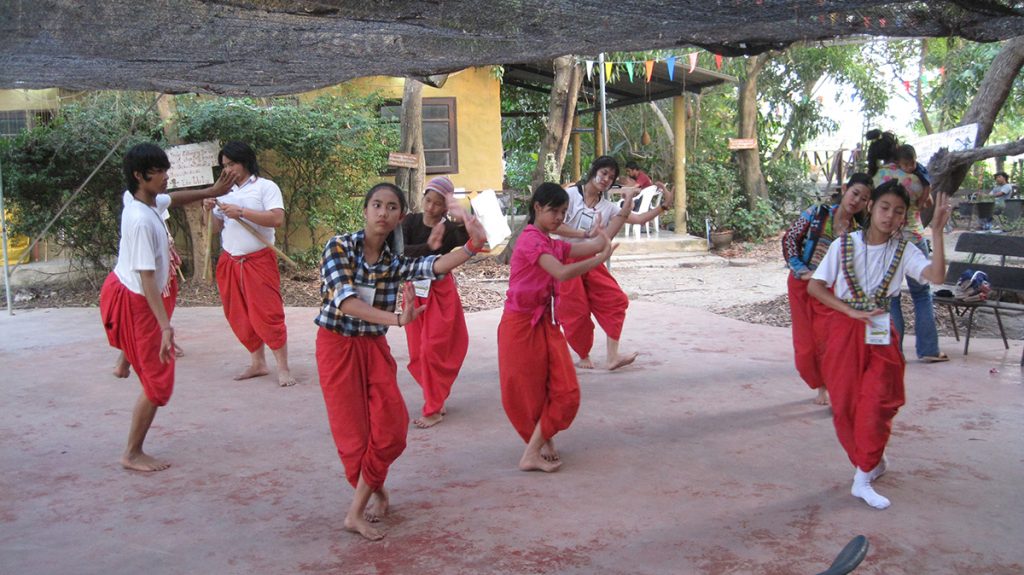
I take back memories of their beautiful new traditional performance space looking out over a large lake where the geese woke me with their loud honking every morning; the flotilla of little ducks clucking their way down the banana grove en-route to gain scraps from the kitchen; performing under the trees to the noise of bird song; the sound of the Thai xylophone being practised over and over again; endless performances to watch and comment on; the company’s quirky new tap dancing skills, and hearing the beat of the drums at 5 am when the community start their day.
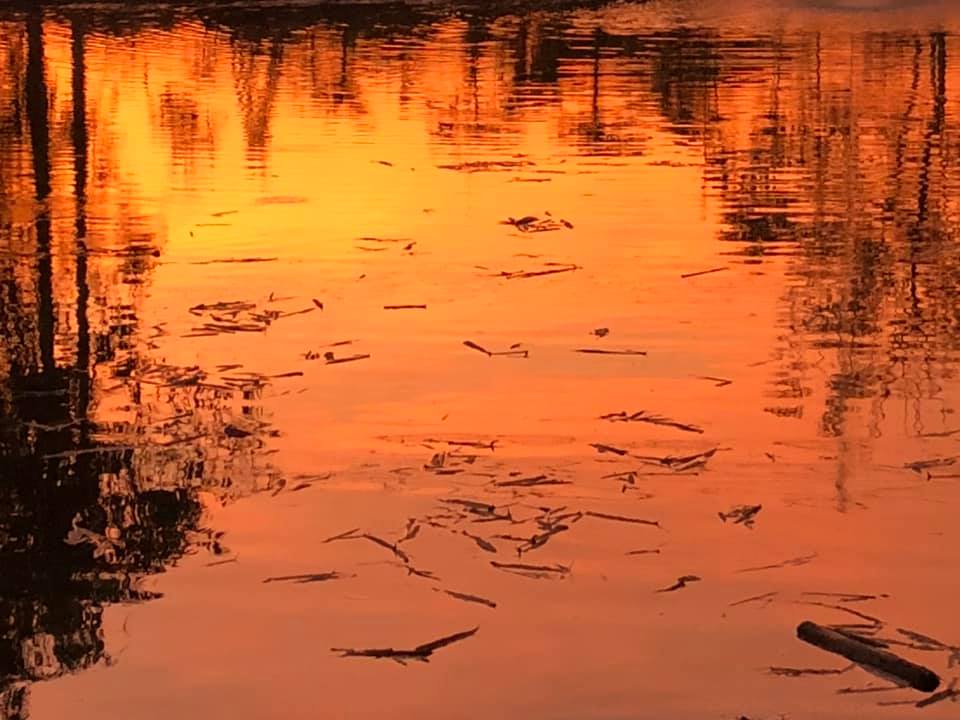
Much has changed from the early days when Chang and his family lived in a mud hut by the side of a lake and I lived in a series of rotting cabins besieged by mosquitoes, frogs and once a poisonous black centipede, and woken daily at 3 am by a cockerel.
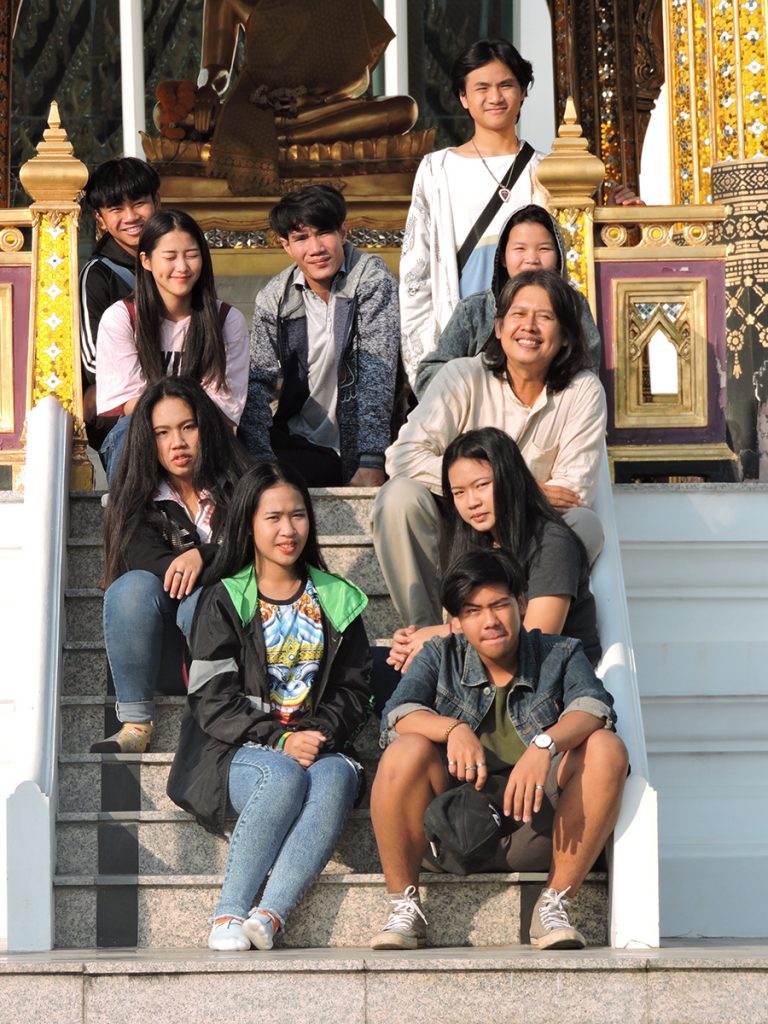
This year I lived in an adapted container with air con – a huge upgrade, and the company is now building a black box theatre, has new dormitories and a sound studio. “Give me a couple of years and I will build you a permanent house,” said Chang before I left. Pandemic willing I intend to take him up on the offer.

